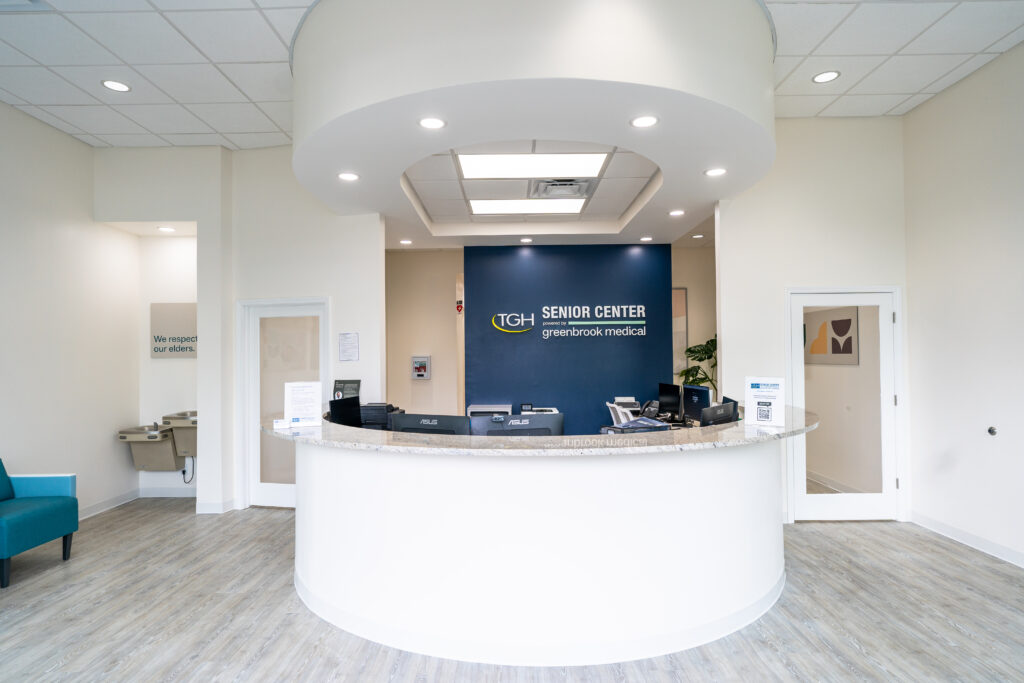Let’s take a moment to discuss something that affects us all as we age but can often seem like a mystery – our sleep. When we discuss seniors and sleep, we realize that our slumber habits can alter as we journey through life’s golden years. As we navigate this phase of life, understanding changing sleep patterns in older adults becomes more vital. Let’s explore this topic and shed some light on ensuring a good night’s sleep in our senior years.
Understanding Sleep and Its Importance
As we delve deeper into seniors and sleep, we must know what happens when we close our eyes each night. Rest isn’t just about shutting off for a while. Instead, it’s a dynamic process where our bodies and minds undergo vital restorative functions.
During sleep, we pass through different stages, creating a cycle known as our sleep-wake cycle. Each cycle plays a crucial role, from memory consolidation to tissue repair, making sleep an essential aspect of our overall health.
These sleep patterns may change as we age, becoming more complex than in our younger years. For older adults, the hours of sleep might decrease, or you might find yourselves waking up more often. While these changes can be a normal part of aging, understanding them is critical to maintaining good sleep health and ensuring your body gets the rest it requires.
Age-Related Changes in Sleep
Sleep is an intricate process that doesn’t stay the same throughout our lives. As we traverse the path of life, especially when we enter our golden years, our sleep patterns undergo several changes. Understanding these alterations is the first step towards adapting and maintaining our sleep health.
You might notice some shifts in your usual sleeping habits in older adults. For instance, you may find it increasingly challenging to fall asleep, or staying asleep might be more difficult than it once was. You might wake up several times during the night or rise earlier in the morning than you’d prefer. Moreover, you may also feel more fatigued during the daytime.
So, why do these changes occur? Aging impacts various aspects of our physiology, including our internal body clock, or circadian rhythm, which regulates our sleep-wake cycle. Our internal clock often shifts forward with age, causing an advanced sleep phase. This shift can make us feel sleepy earlier in the evening and wake up earlier in the morning.
Additionally, older adults might spend less time in deep, restorative sleep stages, which can make sleep feel less refreshing. The production of melatonin, the sleep-inducing hormone, can decrease with age, which might contribute to trouble falling asleep or maintaining sleep.
It’s also worth noting that these changes are often a normal part of aging and don’t necessarily mean there’s a sleep disorder at play. However, significant sleep disruptions or persistent sleep problems are not a standard part of aging and should be discussed with a healthcare provider.
Sleep Disorders in the Elderly
While changes in sleep patterns can be a normal part of aging, it’s essential to understand that some sleep disruptions may signal a more serious underlying sleep disorder. Such conditions are often more prevalent in older adults and can significantly affect their quality of life if left unaddressed.
- Insomnia
Among these disorders, insomnia, characterized by persistent trouble falling asleep or staying asleep, is a common issue. People with insomnia often wake up feeling unrefreshed, which can impact their energy level, mood, health, work performance, and overall quality of life.
- Sleep Apnea
Sleep apnea is another condition frequently seen in older adults. This condition is a serious sleep disorder where breathing repeatedly stops and starts during sleep, often causing loud snoring and daytime tiredness. Untreated sleep apnea can lead to more severe health conditions like heart disease and stroke.
- Restless Legs Syndrome (RLS)
Restless legs syndrome (RLS) and periodic limb movement disorder (PLMD) are two movement disorders that can disrupt sleep. RLS causes an irresistible urge to move your legs, typically in the evenings, making it difficult to fall asleep. PLMD, on the other hand, is characterized by involuntary leg twitching or jerking during sleep, leading to fragmented, non-restful sleep.
- Other Sleep Disorders
Circadian rhythm sleep disorders are also seen in older people, caused by disruptions in the internal body clock. They can result in insomnia, excessive sleepiness, or both, depending on the timing of sleep and wake periods.
Another common sleep disorder in older adults is REM sleep behavior disorder, which involves acting out vivid, often violent dreams during the rapid eye movement (REM) stage of sleep.
Recognizing these conditions is the first step toward getting appropriate treatment. Therefore, if you experience any of these symptoms or your sleep problems persist, seeking medical attention is recommended. An accurate diagnosis can help devise an effective treatment plan, improving sleep quality and overall health.
Exploring Factors That Influence Sleep in Older Adults
As we age, our sleep becomes more susceptible to various influences, both internal and external. Understanding these factors can help us manage our rest better and address any potential obstacles to a restful night’s sleep.
- Physical Health
One significant factor affecting our sleep is physical health conditions. As we get older, we are more likely to experience chronic conditions such as arthritis, heart disease, respiratory disorders, or urinary incontinence, which can all disrupt sleep. Pain or discomfort from these conditions can make falling or staying asleep difficult.
- Medication
Medications used to manage these health conditions can also impact sleep. Certain drugs can cause insomnia, increase the need for nighttime urination, or stimulate the nervous system, making it difficult to fall asleep. Furthermore, some medications might also disrupt the typical sleep architecture, reducing the time spent in sleep’s deep, restful stages.
- Mental Health
Mental health problems like anxiety, depression, and dementia can significantly affect sleep in older adults. These issues can lead to insomnia, frequent awakenings, and even nightmares that disrupt sleep. Stress is another factor that can play a role in insomnia.
- Environment
Environmental factors play a crucial role in sleep quality too. The bedroom environment should be dark, quiet, and cool to promote good sleep. However, factors such as noise, bright lights, an uncomfortable bed, or a room temperature that’s too warm or cold can make it harder to fall asleep and stay asleep.
- Diet and Exercise
Our lifestyle habits, including diet and exercise, also significantly impact sleep. For example, caffeine or alcohol can disrupt sleep, especially close to bedtime. Likewise, a lack of regular physical activity can contribute to poor sleep.
- Social Factors
Last but not least, social factors, including retirement, the loss of a spouse or loved one, or moving to a nursing home, can lead to changes in daily routines and sleep schedules, affecting sleep patterns.
By understanding these factors and how they affect sleep, you can take proactive steps to address these issues, improving your sleep and overall quality of life.
Enhancing Sleep Quality in Older Adults
As we address seniors and sleep, good sleep habits, often called sleep hygiene, become even more paramount. Establishing and maintaining these habits can significantly improve the quality of your sleep and make the changes that come with age easier to manage.
- Regular Routine
Good sleep hygiene begins with a regular sleep schedule. Going to bed and waking up at the same time every day can help regulate your body’s internal clock or circadian rhythm and improve your sleep quality. This routine should be maintained even on weekends and holidays to ensure consistency.
- Good Environment
Creating an optimal sleep environment is another essential aspect of sleep hygiene. Your bedroom should be dark, quiet, and calm. Consider using earplugs or an eye mask if noise or light interrupts sleep. An appropriate mattress and pillows that provide good support can also enhance sleep comfort.
- Nutrition
What you consume can also impact your sleep. Limiting intake of caffeine and alcohol, particularly in the hours leading up to bedtime, can prevent disruptions to your sleep patterns. Similarly, heavy or spicy meals can cause discomfort and should be avoided at bedtime.
Physical Exercise
Exercise is a beneficial addition to your daily routine. Regular physical activity, especially aerobic exercises, can help you fall asleep faster and enjoy deeper sleep. However, it’s best to avoid vigorous exercise close to bedtime as it might interfere with your ability to fall asleep.
- Bedtime Routine
Lastly, establishing a relaxing bedtime routine can signal your body that it’s time to sleep. This routine could include reading a book, taking a warm bath, listening to soothing music, or practicing relaxation exercises.
By developing and maintaining good sleep habits, you can help mitigate some of the natural changes in sleep patterns that occur with age and enhance the quality of your sleep.
Seniors and Sleep
Understanding how our sleep patterns change as we age is vital for our health. Remember, if you’re having trouble sleeping, you’re not alone. Many older adults go through the same thing. But with the correct information and resources, we can tackle these challenges and ensure we get the rest we need for our golden years.
Please don’t hesitate to seek help if you have a sleep problem. Together, we can navigate these changes and work towards improving sleep for a healthier and happier you. After all, we deserve to have sweet dreams at any age, don’t we?
We Want to Help You!
At Greenbrook Medical, we believe every senior citizen should be cared for and respected. That’s why we have made it our mission to provide the best possible care for our patients. Contact us today for a consultation or to request an appointment with one of our geriatric doctors!






